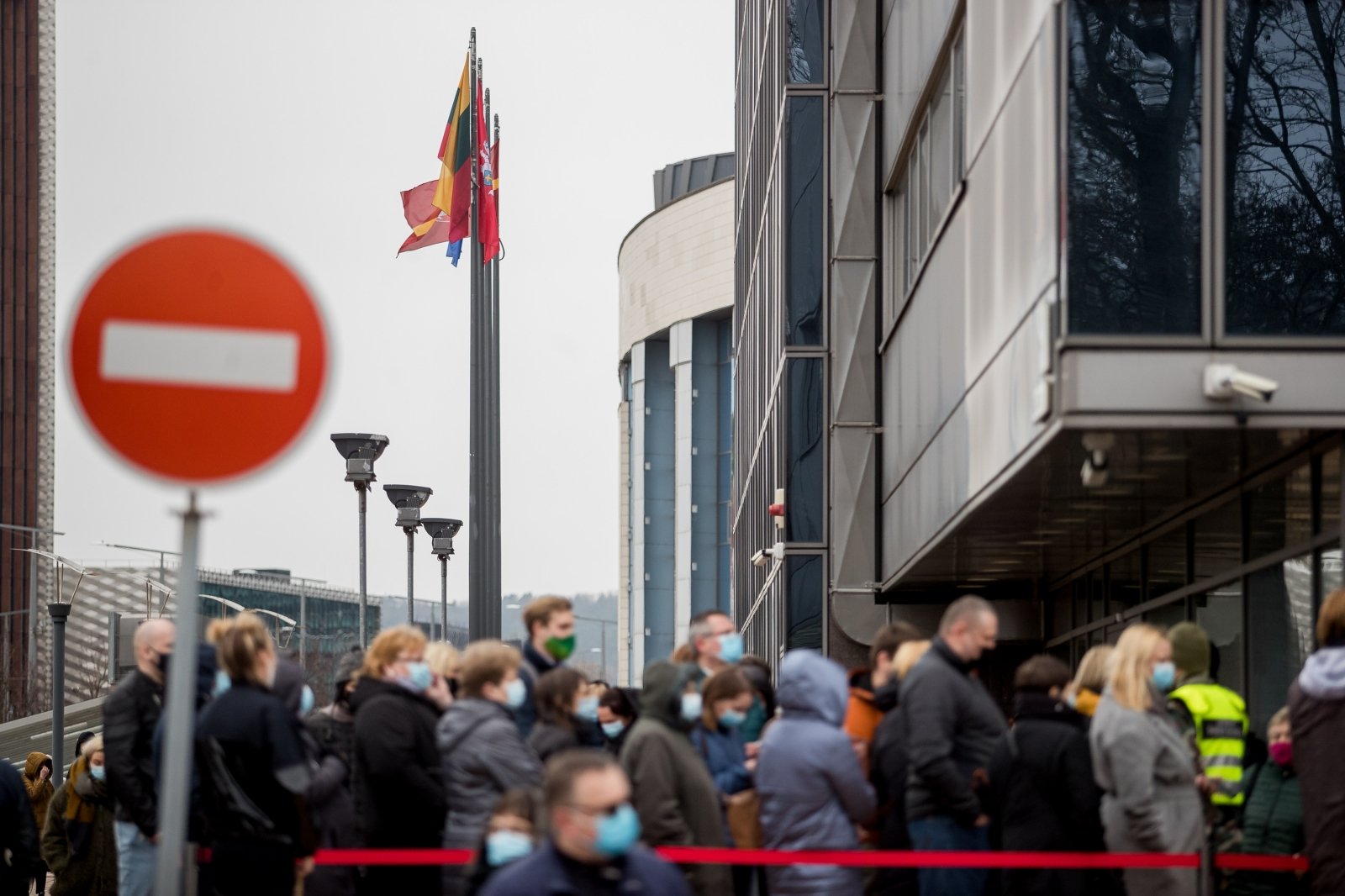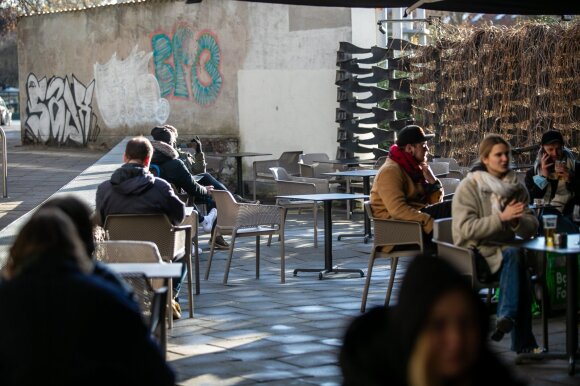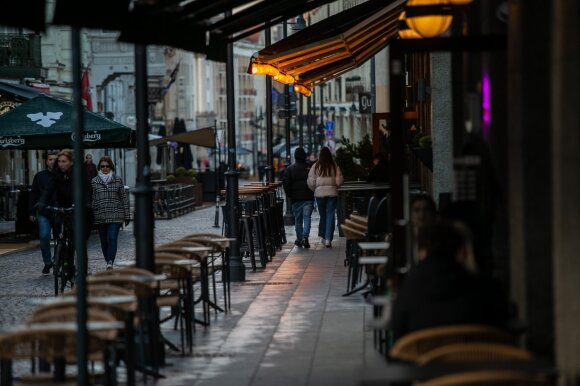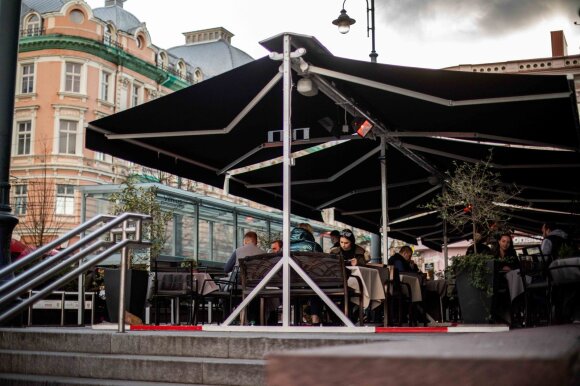
[ad_1]
Who will benefit?
A quarantine change document registered by the Ministry of Health (SAM) specifies who can use the Opportunity Passport.
- 1 week after the second dose of Comirnaty or COVID-19 Vaccine Moderna according to the vaccination schedule;
- 4 weeks after dose of COVID-19 Vaccine Janssen;
- 4 weeks after the first dose of Vaxzevria, but not more than 12 weeks.
- after a second dose of Vaxzevria vaccine according to the vaccination schedule;
- has developed COVID-19 disease and the diagnosis has been confirmed based on a positive SARS-CoV-2 antigen or PCR test and no more than 180 days have elapsed since the positive test result (but not before end of isolation period);
- have undergone a COVID-19 test (SARS-CoV-2 PCR test or antigen test) at least 24 hours before the time of sampling and have been negative;
- They are children under 16 years of age.

What will be possible to do?
SAM indicates that the following less stringent quarantine measures are proposed for these individuals:
- allowing ten people to meet in public spaces, when in other cases this number is halved, this would also apply to private celebrations;
- people with immunity could provide contact services in state and municipal institutions;
- with the options passport, the requirement to only house members of the same family in a room would no longer apply when providing accommodation services;
- It is planned to allow pleasure boat trips: they can be attended by a maximum of ten people or an unlimited number of participants who meet the criteria of the access passport;
- Caterers, restaurants, cafes, bars, gambling venues and gambling establishments could also provide services internally to passport holders. For the moment, it is proposed to limit the working day to 21 hours;
- Passport-eligible individuals would be allowed to hold events with up to 500 spectators both indoors and outdoors. They will be required to occupy seats and occupy no more than 75%. from them. Currently, events are only allowed for up to 150 people, occupying no more than a third of the seats.

Instructions may change in the future
Health Minister Arūnas Dulkys, who raised the question, stated that the need for the Opportunity Passport arose due to the increasing number of people with immunity to the coronavirus.
“The content of the opportunity passport would be given to people who are vaccinated, sick, our political decision – we create opportunities for those who have passed a negative relevant test no earlier than 24 hours,” said the minister.
The Minister of Economy and Innovation Aušrinė Armonaitė stated at the meeting that as the epidemiological situation improves, these changes could be published further.
High school work
For the proper functioning of the functions provided for in the Opportunity Passport, the SAM and the Ministry of Economy and Innovation undertake on May 14. implement a technological solution in e-health.
The Ministry of Economy and Innovation has been tasked with coordinating and organizing the process of implementing the Passport of Opportunities, ensuring that a data protection impact assessment is carried out. Also communicate with the municipalities, provide information, training and other necessary tools.
SAM is committed to guaranteeing the required amount of antigen tests for the implementation of the Passport of Opportunities, to create legal preconditions for preventive examinations.

© DELFI / Josvydas Elinskas
Quarantine changes for municipalities
The city of Klaipeda and three other municipalities should not be included in the list of municipalities of the lighter quarantine regime, but two new municipalities would be included.
The Health Ministry proposes that the municipalities of Plungė, Skuodas and Šiauliai districts be removed from the list without Klaipėda, where the two-week morbidity of COVID-19 exceeded 200 cases per 100,000. population.
They would be eliminated as of May 17.
At that time, the list would be supplemented by the Joniškis and Šakiai district municipalities as morbidity decreased.
With the approval of the Government, as of May 17 the list should include a total of 15 municipalities: Birštonas, Biržai district, Joniškis district, Jurbarkas district, Klaipėda district, Neringa, Pagėgiai, Pakruojis district, Pakruojis district Pasvalys, Rokiškis district, Šakiai district, Šilalė district, Šilutė district, Tauragė district, Telšiai district.
As specified by the Ministry of Health, the list of 20 municipalities will remain in effect from May 10 to 16, which will also include the aforementioned municipalities of Klaipėda city, Plungė, Skuodas and Šiauliai districts.
Municipalities on the list of most lenient quarantine regimes currently allow students to go to school without the mandatory COVID-19 test.
At the suggestion of the Ministry of Culture, these municipalities could also carry out rehearsals for groups of art fans from cultural centers, when no more than 10 people and 20 m2 participate. Area meters, up to 20 people could rehearse together outdoors.
It is strictly forbidden to use the information published by DELFI on other websites, in the media or elsewhere, or to distribute our material in any way without consent, and if consent has been obtained, it is necessary to indicate DELFI as the source .
[ad_2]